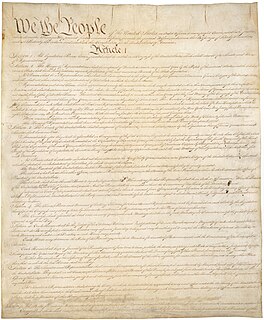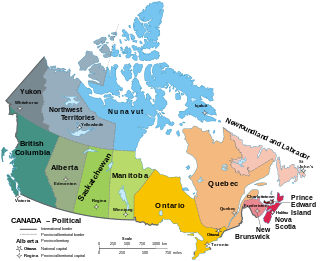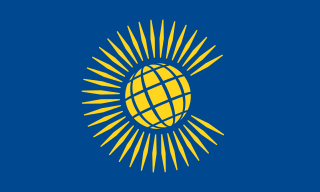 |
|---|
| This article is part of a series on the politics and government of Yugoslavia |
| Administrative divisions |
The following is a list of government cabinets of Yugoslavia .
 |
|---|
| This article is part of a series on the politics and government of Yugoslavia |
| Administrative divisions |
The following is a list of government cabinets of Yugoslavia .

A government is the system or group of people governing an organized community, generally a state.

Hong Kong, officially the Hong Kong Special Administrative Region of the People's Republic of China (HKSAR), is a metropolitan area and special administrative region of the People's Republic of China on the eastern Pearl River Delta of the South China Sea. With over 7.5 million residents of various nationalities in a 1,104-square-kilometre (426 sq mi) territory, Hong Kong is one of the most densely populated places in the world.

Myanmar or Burma, officially the Republic of the Union of Myanmar, is a country in Southeast Asia. Myanmar is bordered by Bangladesh and India to its northwest, China to its northeast, Laos and Thailand to its east and southeast, and the Andaman Sea and the Bay of Bengal to its south and southwest. Myanmar is the largest country in Mainland Southeast Asia and the 10th largest in Asia by area. As of 2017, the population was about 54 million. Its capital city is Naypyidaw, and its largest city is Yangon (Rangoon).

Northern Ireland is variously described as a country, province, or region which is part of the United Kingdom. Located in the northeast of the island of Ireland, Northern Ireland shares a border to the south and west with the Republic of Ireland. In 2011, its population was 1,810,863, constituting about 30% of the island's population and about 3% of the UK's population. The Northern Ireland Assembly, established by the Northern Ireland Act 1998, holds responsibility for a range of devolved policy matters, while other areas are reserved for the British government. Northern Ireland co-operates with the Republic of Ireland in several areas.

Scotland is a country that is part of the United Kingdom. Covering the northern third of the island of Great Britain, mainland Scotland has a 96-mile (154 km) border with England to the southeast and is otherwise surrounded by the Atlantic Ocean to the north and west, the North Sea to the northeast and the Irish Sea to the south. The country also contains more than 790 islands, principally in the archipelagos of the Hebrides and the Northern Isles. Most of the population, including the capital Edinburgh, is concentrated in the Central Belt – the plain between the Scottish Highlands and the Southern Uplands – in the Scottish Lowlands.

The Constitution of the United States is the supreme law of the United States of America. This founding document, originally comprising seven articles, delineates the national frame of government. Its first three articles embody the doctrine of the separation of powers, whereby the federal government is divided into three branches: the legislative, consisting of the bicameral Congress ; the executive, consisting of the president and subordinate officers ; and the judicial, consisting of the Supreme Court and other federal courts. Article IV, Article V and Article VI embody concepts of federalism, describing the rights and responsibilities of state governments, the states in relationship to the federal government, and the shared process of constitutional amendment. Article VII establishes the procedure subsequently used by the 13 States to ratify it. It is regarded as the oldest written and codified national constitution in force.

James Harold Wilson, Baron Wilson of Rievaulx, was a British statesman who served as Prime Minister of the United Kingdom from 1964 to 1970 and 1974 to 1976. A member of the Labour Party, he was Member of Parliament (MP) for Ormskirk from 1945 to 1950 and for Huyton from 1950 to 1983.

The provinces and territories of Canada are sub-national divisions within the geographical areas of Canada under the jurisdiction of the Canadian Constitution. In the 1867 Canadian Confederation, three provinces of British North America—New Brunswick, Nova Scotia, and the Province of Canada —were united to form a federated colony, becoming a sovereign nation in the next century. Over its history, Canada's international borders have changed several times, and the country has grown from the original four provinces to the current ten provinces and three territories. Together, the provinces and territories make up the world's second-largest country by total area.

The Bharatiya Janata Party is one of two major political parties in India, along with the Indian National Congress. It is the current ruling political party of the Republic of India, having been so since 2014. The BJP is a right-wing party, and its policy has historically reflected Hindu nationalist positions. It has close ideological and organisational links to the much older Rashtriya Swayamsevak Sangh (RSS). As of 2019, it is the country's largest political party in terms of representation in the national parliament and state assemblies and is the world's largest party in terms of primary membership.

The federal government of the United States is the national government of the United States, a federal republic in North America, composed of 50 states, a federal district, five major self-governing territories and several island possessions. The federal government is composed of three distinct branches: legislative, executive, and judicial, whose powers are vested by the U.S. Constitution in the Congress, the president and the federal courts, respectively. The powers and duties of these branches are further defined by acts of Congress, including the creation of executive departments and courts inferior to the Supreme Court.

India is a federal union comprising 28 states and 8 union territories, for a total of 36 entities. The states and union territories are further subdivided into districts and smaller administrative divisions.

Narendra Damodardas Modi is an Indian politician serving as the 14th and current Prime Minister of India since 2014. He was the Chief Minister of Gujarat from 2001 to 2014 and is the Member of Parliament for Varanasi. Modi is a member of the Bharatiya Janata Party (BJP) and of the Rashtriya Swayamsevak Sangh (RSS), a Hindu nationalist volunteer organisation. He is the first prime minister born after India's independence, the second non-Congress one to win two consecutive terms after AB Vajpayee and first to win both terms with majority outside Congress as well.

The Government of India, often abbreviated as GoI, is the union government created by the constitution of India as the legislative, executive and judicial authority of the union of twenty eight states and eight union territories of a constitutionally democratic republic. The seat of the Government is located in New Delhi, the capital of India.

The Cabinet of Australia is the executive branch of the government of Australia and is the council of senior ministers of the Crown, responsible to Parliament. Ministers are appointed by the Governor-General, on the advice of the Prime Minister, who is the leader of the cabinet. Cabinet meetings are strictly private and occur once a week where vital issues are discussed and policy formulated. The Cabinet is also composed of a number of Cabinet committees focused on governance and specific policy issues. Outside the Cabinet there is an Outer Ministry and also a number of Assistant Ministers, responsible for a specific policy area and reporting directly to a senior Cabinet minister of their portfolio. The Cabinet, the Outer Ministry, and the Assistant Ministers collectively form the full Commonwealth Ministry of the government of the day.

Canada is a country in the northern part of North America. Its ten provinces and three territories extend from the Atlantic to the Pacific and northward into the Arctic Ocean, covering 9.98 million square kilometres, making it the world's second-largest country by total area. Its southern and western border with the United States, stretching 8,891 kilometres (5,525 mi), is the world's longest bi-national land border. Canada's capital is Ottawa, and its three largest metropolitan areas are Toronto, Montreal, and Vancouver.

In the United States, a state is a constituent political entity, of which there are currently 50. Bound together in a political union, each state holds governmental jurisdiction over a separate and defined geographic territory where it shares its sovereignty with the federal government. Due to this shared sovereignty, Americans are citizens both of the federal republic and of the state in which they reside. State citizenship and residency are flexible, and no government approval is required to move between states, except for persons restricted by certain types of court orders.

The Commonwealth of Nations, generally known simply as the Commonwealth, is a political association of 54 member states, almost all of which are former territories of the British Empire. The chief institutions of the organisation are the Commonwealth Secretariat, which focuses on intergovernmental aspects, and the Commonwealth Foundation, which focuses on non-governmental relations between member states.

The Syrian civil war is an ongoing multi-sided civil war in Syria fought between the Ba'athist Syrian Arab Republic led by Syrian president Bashar al-Assad, along with domestic and foreign allies, and various domestic and foreign forces opposing both the Syrian government and each other in varying combinations.